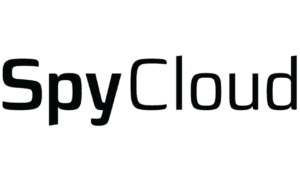The Lone Star State has long been known for its vast landscapes, rich history, and unique identity. But over the past few decades, Texas has also gained a new reputation as a powerhouse in the tech world. Cities like Austin, Dallas, and Houston have become major players in the global tech industry, drawing in entrepreneurs, startups, and tech giants alike. As Texas’s tech industry grows, it’s having a noticeable impact on local culture, transforming everything from the way people work and socialize to how they think about their communities and future.
The Rise of Tech in Texas
Texas’s tech journey began in earnest with the rapid growth of cities like Austin in the late 1990s and early 2000s. What was once known as the “Live Music Capital of the World” quickly became a thriving tech hub as companies like Dell and later Apple, IBM, and Google established offices there. Austin’s South by Southwest (SXSW) festival, initially a music event, has evolved to include tech and interactive segments, attracting innovators from around the world. The city is now often referred to as “Silicon Hills,” a nod to California’s Silicon Valley, and is home to thousands of tech startups and companies.
Meanwhile, Dallas-Fort Worth and Houston have carved out their own tech niches. Dallas has become a center for telecommunications and cybersecurity, hosting companies like AT&T and numerous defense tech firms. Houston, historically known for energy and medical industries, has been embracing tech innovations in those fields, with a focus on energy tech and medical technology. This growth has cemented Texas as a competitive player in the tech industry, bringing with it both economic benefits and cultural changes.
Shifting Lifestyles and Values
One of the most noticeable impacts of the tech industry on Texas culture is the shift in lifestyle and values. Traditional Texan values like independence and resilience align well with the tech industry’s entrepreneurial spirit, creating an ideal environment for startups and innovation. Many people now see tech as an opportunity to chase their dreams and develop ideas that could change the world, reflecting Texas’s historical reputation for self-made success.
The work-life balance in tech has also influenced local culture. Texas tech companies often promote flexible working hours, remote work options, and creative office spaces, which have changed the traditional 9-to-5 routine for many residents. This flexibility gives people more time to pursue personal interests, spend time with family, or even launch side projects reflecting a cultural shift towards a more balanced lifestyle.
Tech’s Impact on Texas Education
The growth of Texas’s tech industry has also influenced the state’s educational priorities. Universities and colleges, especially in cities like Austin, Dallas, and Houston, are expanding their technology-related programs to meet the demand for a tech-skilled workforce. Institutions like the University of Texas at Austin, Texas A&M, and Rice University are recognized for their engineering, computer science, and business programs, attracting students who want to break into tech.
Many high schools and even middle schools in Texas now emphasize STEM (Science, Technology, Engineering, and Math) education. Coding camps, tech workshops, and robotics clubs have become common, preparing the younger generation for future jobs in tech. This focus on education is influencing local culture, as more families and communities prioritize tech knowledge as essential. Kids are growing up thinking of technology not just as a tool, but as a field where they can innovate and make a difference.
Startups and Innovation Culture
Texas’s booming startup scene has played a huge role in shaping local culture. Austin, in particular, has gained a reputation as a city of innovation, attracting ambitious entrepreneurs who want to start their own companies rather than work for big corporations. The city’s tech scene thrives on collaboration, with coworking spaces and incubators offering affordable spaces for startups to grow. Events like SXSW and the Austin Startup Week bring together creative minds and investors, fostering a community where collaboration and innovation are highly valued.
This startup culture has spread beyond Austin to other parts of Texas, as residents embrace the idea of building something new from scratch. There’s a “can-do” attitude in the air, one that’s deeply embedded in Texas’s history. Today’s entrepreneurs might not be wrangling cattle or striking oil, but they’re tackling new frontiers in artificial intelligence, renewable energy, and digital health. In this way, Texas’s startup culture has reshaped local identity, adding a tech-savvy twist to the state’s long-standing appreciation for risk-taking and hard work.
Job Opportunities and Economic Growth
The tech industry has brought tremendous economic growth and job opportunities to Texas, drawing people from around the U.S. and even internationally. This influx of talent has created a vibrant, diverse workforce that adds to the local culture. Newcomers bring different perspectives and experiences, making Texas cities more dynamic and multicultural.
Local businesses are also benefiting from the tech boom. From real estate and retail to food and entertainment, various sectors have seen growth thanks to the increased population and economic activity driven by tech. Austin’s booming restaurant scene, for instance, is partly fueled by the young professionals working in tech who enjoy exploring new culinary experiences.
However, this growth has also brought challenges. Housing prices in cities like Austin have skyrocketed, making it harder for some longtime residents to afford living in the areas they’ve called home for years. Traffic congestion and rising living costs are becoming pressing issues, prompting local leaders and communities to consider how to make growth sustainable and inclusive.
Influence on Arts and Entertainment
The influx of tech talent and companies has also influenced Texas’s arts and entertainment scenes, especially in Austin. The city’s mix of music, art, and tech has given rise to a unique cultural identity that appeals to both techies and creatives. Tech companies often sponsor local events, festivals, and art installations, supporting the arts community and fostering collaboration between artists and tech professionals.
This fusion of technology and creativity is visible at events like SXSW, where music, film, and tech intersect, attracting global attention. Virtual reality (VR) art shows, tech-enhanced live music experiences, and interactive media displays are just some examples of how tech has merged with traditional art forms, creating a new and exciting cultural experience.
Environmental Awareness and Tech-Driven Sustainability
As a state known for its oil industry, Texas has historically relied on fossil fuels. But with the rise of tech, there’s a growing emphasis on sustainability. Many tech companies in Texas prioritize environmental responsibility, implementing policies for energy efficiency and waste reduction, while also supporting the development of clean tech.
Austin, for example, has seen an increase in electric vehicles, sustainable office spaces, and tech-enabled solutions for reducing environmental impact. Some startups focus exclusively on green technology, developing products that promote renewable energy or reduce waste. This cultural shift towards environmental awareness is influencing the way Texans think about their impact on the planet, encouraging them to consider how technology can contribute to a more sustainable future.
The Future of Texas’s Tech Culture
The tech industry’s influence on Texas culture shows no signs of slowing down. As technology continues to advance, Texas will likely see more changes in work, lifestyle, education, and even social values. The combination of Texas’s historical values of resilience and independence with the innovative spirit of the tech world is creating a unique cultural identity that’s both modern and deeply rooted in the state’s heritage.
For young Texans, the possibilities are endless. The tech industry offers career opportunities, a chance to innovate, and the potential to make a positive impact on their communities. As they grow up in a world where tech is part of everyday life, they’ll likely continue to shape Texas’s tech culture in new and exciting ways.
Conclusion
Texas’s tech industry is more than just a source of economic growth; it’s a powerful influence on the state’s culture, impacting everything from work habits to education, arts, and the environment. As tech continues to grow, Texas will remain a place where innovation and tradition meet, offering a unique lifestyle and identity that appeals to residents and newcomers alike. Whether they’re developing the next big app or creating tech solutions for sustainability, Texans are embracing the tech-driven future while honoring the state’s rich history and vibrant culture.



































